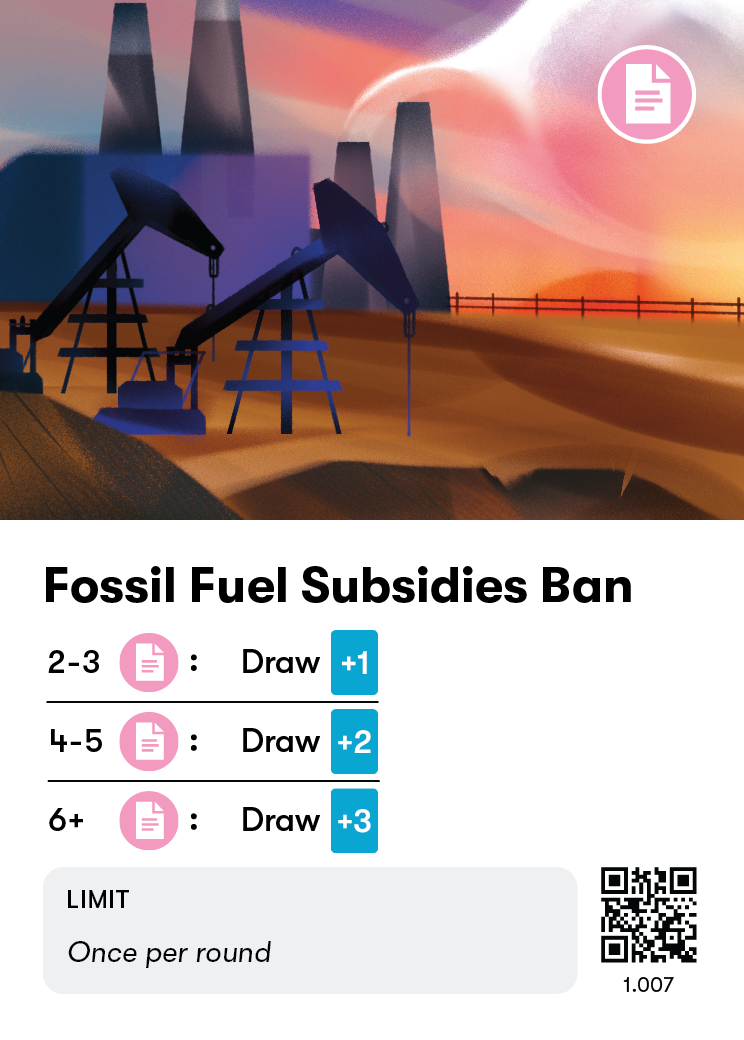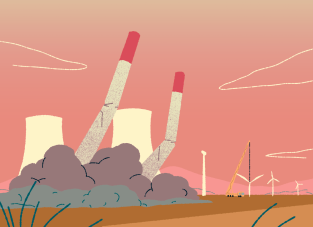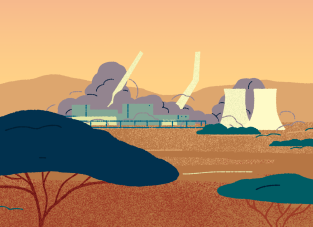Fossil Fuel Subsidies Ban
Local Project
Around the world, energy produced using fossil fuels is made cheaper by government subsidies. Subsidies can include governments announcing discounts on energy bills, lowering costs for customers; or they can be direct payments to companies that extract fossil fuels and produce energy from them. In 2020, worldwide fossil fuel subsidies totalled US$5.9 trillion, or 6.8% of global GDP.
They might lower prices, but subsidies come at a high cost. By encouraging the burning of fossil fuels, these subsidies contribute to the climate emergency, cause ill health and premature death from air pollution, and mostly benefit wealthier people, as they rarely target poorer groups. Subsidies have also held back the growth in renewable energy by making fossil fuels artificially cheap.
At the UN climate conference (COP26) in 2021, countries agreed to accelerate the phase-out of some fossil fuel subsidies. This could open up much needed funding and make it easier for renewable energy infrastructure to take off. But, despite the huge benefits of doing this, many countries have found it difficult to reform their energy subsidies. This is partly because it can lead to a temporary increase in energy prices, which impacts citizens, leading to a political backlash. Fossil fuel companies are also effective at lobbying governments to keep subsidies.
When you take this action, draw 1, 2, or 3 additional Local Project cards if you have 2–3, 4–5, or 6 or more Regulation tags in this card's stack.
You may do this once per round.

Fossil Fuel Subsidies: Overview (Oil Change International)
Fossil Fuel Subsidies (IMF)
Ending Fossil Fuel Subsidies: the politics of saving the planet (Oxfam)
▶️ Why is it so hard to end fossil fuel subsidies? (Carbon Brief, YouTube)
Support campaigns against fossil fuel subsidies:



